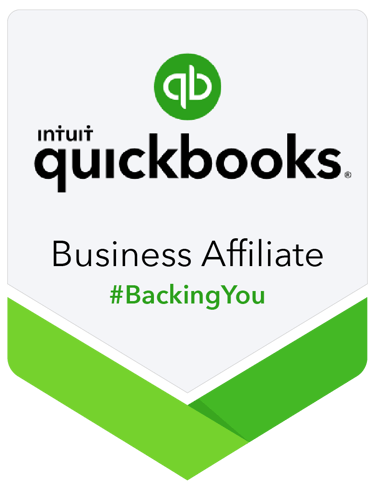Do I Need a Bookkeeper or Accountant? Small Business Guide
Confused about hiring a bookkeeper vs accountant? Learn the key differences, when to hire each, and how outsourcing financial tasks can save your small business time and money.
BOOKKEEPING
Jerry Blanco
6/18/20255 min read


Unraveling the Mystery: How to Choose the Right Financial Professional to Save Time, Money, and Your Sanity
If you're a small business owner juggling fifteen different hats while trying to grow your company, you've probably stared at a pile of receipts and wondered: "Do I need a bookkeeper, an accountant, or am I just making this more complicated than it needs to be?"
You're not alone. This question keeps many entrepreneurs up at night, especially when they're bootstrapping their way to success and every dollar counts. The good news? By the end of this post, you'll have crystal-clear guidance on which financial professional your business needs—and when.
The Great Financial Professional Mix-Up
Picture this: You're at a networking event, and someone asks, "So, who does your books?" You mumble something about "handling it yourself" while secretly wondering if that Excel spreadsheet you update once a month actually counts as "doing your books."
Here's the truth most people won't tell you: Most small business owners confuse bookkeepers and accountants because they've never had it explained in plain English. Let's fix that right now.
What Does a Bookkeeper Actually Do? (Hint: It's Not Just Data Entry)
Think of your bookkeeper as your business's financial record-keeper and organizer. They're like that super-organized friend who color-codes everything and actually enjoys sorting through paperwork.
A bookkeeper handles your day-to-day financial tasks:
Recording every sale, expense, and transaction in your accounting software
Reconciling your bank accounts (making sure your records match your bank statements)
Managing accounts payable (bills you owe) and accounts receivable (money owed to you)
Processing payroll and handling payroll taxes
Generating basic financial reports like profit and loss statements
Organizing receipts and financial documents
Maintaining your chart of accounts (think of this as your financial filing system)
Here's what most people don't realize: A good bookkeeper doesn't just enter numbers—they catch errors, spot trends, and keep your financial house in order so you can focus on what you do best.
What Does an Accountant Do? (Spoiler: They're Your Financial Strategist)
If your bookkeeper is your financial organizer, your accountant is your financial strategist and advisor. They take the clean, organized data your bookkeeper provides and turn it into actionable insights.
An accountant focuses on higher-level financial strategy:
Preparing and filing your business tax returns
Providing tax planning advice to minimize what you owe
Analyzing your financial statements to identify trends and opportunities
Helping with business planning and forecasting
Advising on major financial decisions
Ensuring compliance with tax laws and regulations
Offering guidance on business structure (LLC, S-Corp, etc.)
Assisting with loan applications and investor presentations
The key difference: While bookkeepers track what happened, accountants help you understand what it means and what to do next.
The Real Question: What Does Your Business Need Right Now?
Here's where we get practical. Your business needs will determine whether you need a bookkeeper, an accountant, or both.
You Probably Need a Bookkeeper If:
You're spending more than 5 hours a week on financial record-keeping
You have regular transactions (sales, expenses, payroll)
Your "system" involves shoebox receipts or a basic Excel spreadsheet
You're making mistakes in your financial records
You need regular financial reports to understand your cash flow
You have employees and need payroll processing
You Definitely Need an Accountant If:
Your business structure is complex (multiple entities, partnerships)
You're facing significant tax liability
You need strategic financial advice for growth decisions
You're applying for loans or seeking investors
You're dealing with tax audits or compliance issues
Your annual revenue exceeds $100,000
You Need Both If:
Your business has grown beyond basic transactions
You want monthly financial statements AND strategic tax planning
You're scaling rapidly and need both operational support and strategic guidance
You value having a complete financial team
The Hidden Costs of DIY Financial Management
Before you decide to "just handle it yourself," let's talk numbers. Many small business owners think they're saving money by doing their own books, but here's what that actually costs:
Time Investment: The average small business owner spends 8-12 hours per month on bookkeeping tasks. At your hourly rate (let's say $50/hour), that's $400-600 monthly in opportunity cost.
Error Costs: Bookkeeping mistakes can lead to:
Missed tax deductions (costing hundreds to thousands annually)
Late payment penalties
Inaccurate financial reporting leading to poor business decisions
Potential IRS issues
Stress Factor: How much is your peace of mind worth? Knowing your finances are handled professionally lets you focus on growing your business.
Outsourcing: Your Secret Weapon for Business Growth
Here's what successful entrepreneurs understand: Outsourcing financial tasks isn't an expense—it's an investment in your business's growth and your own sanity.
Benefits of Outsourcing Bookkeeping:
Time Freedom: Reclaim 8-12 hours monthly to focus on revenue-generating activities
Accuracy: Professional bookkeepers catch errors you might miss
Consistency: Regular, timely financial reporting
Scalability: Professional systems grow with your business
Cost-Effective: Often cheaper than hiring a full-time employee
Benefits of Outsourcing Accounting:
Tax Optimization: Professional tax planning can save thousands annually
Strategic Insights: Understanding what your numbers really mean
Compliance Protection: Avoiding costly mistakes and penalties
Growth Planning: Data-driven decisions for business expansion
How to Choose the Right Professional for Your Business
Ready to make a decision? Here's your step-by-step action plan:
Step 1: Assess Your Current Situation
Ask yourself:
How much time do you spend on financial tasks monthly?
Are your records accurate and up-to-date?
Do you understand your financial statements?
Are you confident in your tax compliance?
Step 2: Define Your Immediate Needs
Do you need daily transaction recording? (Bookkeeper)
Do you need tax strategy and filing? (Accountant)
Do you need both operational support and strategic guidance? (Both)
Step 3: Consider Your Growth Plans
Where do you want your business to be in 12 months?
Will your financial complexity increase?
Are you planning major business changes?
Step 4: Budget Realistically
Compare the cost of outsourcing to your time investment
Factor in the cost of mistakes and missed opportunities
Consider it an investment, not just an expense
Making the Smart Choice for Your Business
The truth is, there's no one-size-fits-all answer. A freelance graphic designer with simple transactions might thrive with just a bookkeeper, while a growing e-commerce business might need both a bookkeeper for daily operations and an accountant for strategic planning.
The key is being honest about:
Your current financial management skills
The time you're spending on financial tasks
Your business's complexity and growth trajectory
Your comfort level with financial compliance
Remember, you can always start with one professional and add another as your business grows. Many successful businesses begin with a bookkeeper and add an accountant when their revenue and complexity increase.
Your Next Steps
Don't let financial management hold your business back. Here's what to do right now:
Audit your current financial management: How many hours did you spend on bookkeeping last month?
List your pain points: What financial tasks frustrate you most?
Research local professionals: Start building a shortlist of potential bookkeepers or accountants
Calculate the real cost: Compare your time investment to professional fees
The most successful entrepreneurs understand that their time is their most valuable asset. Every hour you spend wrestling with QuickBooks or organizing receipts is an hour you're not spending on growing your business.
Ready to reclaim your time and get your finances on track? The right financial professional is waiting to help you build the business of your dreams—without the financial headaches.
What questions do you have about bookkeeping vs accounting?


